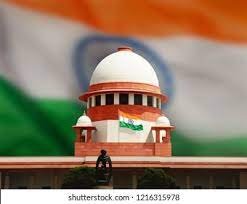This judgment addresses a crucial procedural question regarding the admission of additional evidence in appellate proceedings.
The appellants (original plaintiffs) and respondent (original defendant) were involved in a dispute concerning an agreement dated 20.02.1995 for the sale of a house property for ₹10,67,000. An amount of ₹2,50,000 was paid on the agreement date, with another ₹2,50,000 paid on 30.03.1995. The plaintiffs claimed to have disposed of other immovable properties to purchase the suit property and were ready and willing to perform their part of the agreement.
The defendant denied the plaintiffs’ case, claiming a loan of ₹1,00,000 from plaintiff No.1, and alleged that his signatures were obtained on blank stamp papers. He also stated he was unaware of the plaintiffs selling other properties.
The Trial Court decreed the suit for specific performance after finding that the plaintiffs proved the agreement and their readiness and willingness.
The defendant, feeling aggrieved, appealed to the High Court and filed an application under Order XLI Rule 27(1) of the Code of Civil Procedure, 1908, to produce additional documentary evidence. This evidence included certified copies of a house tax demand register, an encumbrance certificate, a sale deed, and a City Survey Endorsement related to the property.
The High Court, after considering this additional evidence and exercising its power under Section 73 of the Indian Evidence Act to compare signatures, reversed the decree. The High Court concluded that the agreement dated 20.02.1995 was not proven, and the plaintiffs’ case was not true, directing the defendant to return the ₹1,00,000 borrowed from plaintiff No.1.
Law Involved:
The central legal provision in question is Order XLI Rule 27(1) of the Code of Civil Procedure, 1908, which governs the conditions under which an Appellate Court may allow additional evidence to be produced.
Section 73 of the Indian Evidence Act, 1872, allowing for the comparison of signatures, was also utilized by the High Court.
Precedents cited include Anil Rai Vs. State of Bihar, (2001) 7 SCC 318 and Ratilal Jhaverbhai Parmar and Others Vs. State of Gujarat and Others, 2024 INSC 801, which were relied upon during arguments. Additionally, Bachhaj Nahar Vs. Nilima Mandal and Anr., AIR 2009 SC 1103 and Union of India Vs. Ibrahim Uddin and Anr., (2012) 8 SCC 148 were referenced for their usefulness regarding Order XLI Rule 27(1).
Reasoning:
The short issue before the Supreme Court was whether it is necessary for the Appellate Court to consider the pleadings of the parties before adjudicating a prayer for leading additional evidence under Order XLI Rule 27(1).
The High Court had permitted the defendant to lead additional evidence, leading to the reversal of the Trial Court’s decree. The High Court’s view was that the agreement was not proven and the plaintiffs’ case was false.
The Supreme Court noted that the High Court proceeded to consider the application under Order XLI Rule 27(1) without examining whether the additional evidence sought to be led was supported by the pleadings of the defendant in his written statement.
Crucially, the Court emphasized that it is first necessary to examine the pleadings of such party to gather if the case sought to be set up is pleaded so as to support the additional evidence. In the absence of necessary pleadings, permitting additional evidence would be an unnecessary exercise and might not even be permissible.
The Supreme Court found that the High Court committed an error by allowing the application moved by the defendant for leading additional evidence without examining the aspect as to whether the additional evidence proposed to be led was in consonance with the pleadings of the defendant.
Furthermore, the High Court did not address the aspect of delay in deciding the appeal. This procedural error required a re-consideration of the matter.
Holding:
The Civil Appeal is allowed. The judgment of the High Court is set aside, as it is found to be unsustainable in law. The proceedings are remanded to the High Court to re-consider the same afresh in accordance with law.
Iqbal Ahmed Dead by LRs & Anr vs Abdul Shukoor
Supreme Court: 2025 INSC 10127 (DoJ 22-08-2025)






